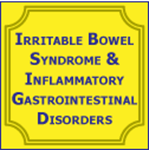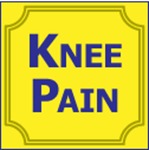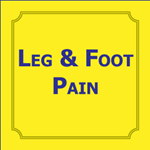You have no items in your shopping cart.
Booklets with Test
Inflammation
Inflammation, in its broadest sense, is the body’s response to tissue injury. Acute inflammation is typically of short duration, is nonspecific, and may be triggered by any injury. On the other hand, when the inflammation has a slow onset and persists for weeks or months it is referred to as chronic. A major difference between acute and chronic inflammation is that the former is restricted to a specific tissue or organ, whereas the latter affects the lining of the blood vessels throughout the body. In this sense, chronic inflammation is systemic. Chronic, systemic inflammation has been implicated as a major causative factor for several major diseases, including cardiovascular disease, retinopathy, nephropathy, and neuropathy. Detection of chronic inflammation is essential in order to prevent and control these disease processes. This course is designed to help clinicians understand the underlying physiological mechanisms that lead to chronic, systemic inflammation so that they may be more capable of assisting patients in avoiding unnecessary suffering, disability, and expense.
$30.00
Irritable Bowel Syndrome
Identifies the differences between functional gastrointestinal disorders and inflammatory bowel diseases. Explains the pathophysiology of irritable bowel syndrome (IBS) and identifies appropriate treatment strategies. Discusses the pathophysiology of Crohn’s disease and ulcerative collitis and identify appropriate treatment strategies. Identifies psychosocial issues in chronic gastrointestinal disorders. Discusses new research on the causes of gastrointestinal disorders, such as peptic ulcer disease.
$30.00
Keeping Balance & Preventing Falls
Lists causes and health hazards of falls. Outlines methods of preventing falls among the elderly. Lists the techniques for improving balance among the elderly. Describes procedures to prevent falls and reduce the risks of injury.
$30.00
Knee Pain
Describes the anatomical structure of the knee. Identifies the different types of knee injuries and their manifestations. Describes the difference between major and minor injuries and the causes of knee pain. Explains strategies for preventing knee pain. Discusses the medical and surgical options now available to treat knee pain/injury.
$30.00
Leg & Foot Pain
Describes how leg and foot pathologies can impair functional ability. Describes the role of different disciplines in the diagnosis
and treatment of leg and foot pathologies. Outlines evidence-based interventions for each condition. Identifies risk factors for each leg/foot condition. Identifies how this course will impact his/her current practice and interaction with patients, clients, and families.
$30.00
Loss of Control: Fighting Back with Full Strength
Describes the issues related to stress-induced feelings of loss of control, the physiological and psychological mechanisms behind these issues, and means of coping with them. Identifies grief-, aggression- and suicide-related trends in both society and the individual and identifies the neurobiologic mechanisms involved. Develops approaches to the rehabilitation of patients who have loss of control issues that lead to substance abuse. Identifies patients at risk for disorders that may be triggered by the feeling of loss of control.
$30.00
Low Back Pain
Defines low back pain. Describes the prevalence of this condition within the U.S. Identifies the different causes of low back pain. Describes some of the treatment approaches employed. Discuss ways to prevent low back pain.
$30.00
Marijuana's Health Risks - 3rd edition
Discusses common negative health and mental health effects of highpotency cannabis products. Names medications with which cannabanoids may adversely interact. Describes ways exposure to THC can harm young people’s development and health. Lists the characteristics of cannabis hyperemesis syndrome. Identifies the health risks of using synthetic THC products.
$30.00








